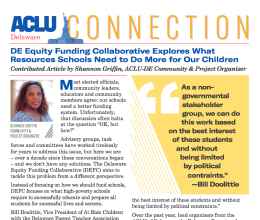Under federal law, it is a felony to harbor undocumented immigrants. However, whether the statute applies to the services offered by a faith group depends on a number of additional factual circumstances.
To establish a violation of the harboring statute (8 U.S.C. § 1324), a prosecutor must prove beyond a reasonable doubt that an individual: (1) harbored the immigrant; (2) knew or recklessly disregarded that the immigrant was undocumented; and (3) engaged in conduct that tended to substantially facilitate the undocumented immigrant remaining in the United States illegally. The case law governing Delaware has defined “harboring” to require proof of an intent to help prevent the detection of the immigrant by the authorities.
Accordingly, the harboring statute does not prohibit providing shelter to an immigrant if not done with knowledge or reckless disregard of the individual’s legal status. For example, if a faith group offers shelter to families—or even just immigrant families—on the basis of economic hardship, it does not violate the harboring statute unless the faith group comes to know or recklessly disregards that the immigrant is undocumented.
The harboring statute also does not prohibit sheltering an undocumented immigrant if done without an intention to help prevent detection. At least under the law controlling in Delaware, a faith group that knows an immigrant is undocumented would probably not violate the statute by offering assistance so long as the person is already in immigration proceedings, has a pending application for legal status, or has otherwise been identified to the authorities, unless there is some effort to prevent the detection of the alien by the authorities.
Finally, the harboring statute does not prohibit allowing undocumented immigrants to act as missionaries in the United States if the person has been a member of the organization or denomination for at least a year and is not compensated as an employee beyond basic living expenses. Outside this exemption, courts have not yet recognized any legal defenses for faith groups who argue that their conduct is required by their faith, though there have been very few such prosecutions and therefore few test cases.
In sum, there is some uncertainty about how a prosecutor or court might ultimately interpret the various provisions of § 1324. It is clear, however, that a faith group places itself at higher risk of successful prosecution under the harboring statute if it offers its assistance only to undocumented immigrants or asks those receiving services about their immigration status, announces itself as a “sanctuary,” or if it advises undocumented immigrants on how to hide from ICE.
More information about sanctuary and immigration enforcement in sensitive areas is available here.
This blog post provides general legal information. If your congregation provides services to people who may be undocumented, we urge you to seek legal advice specific to your circumstances.









